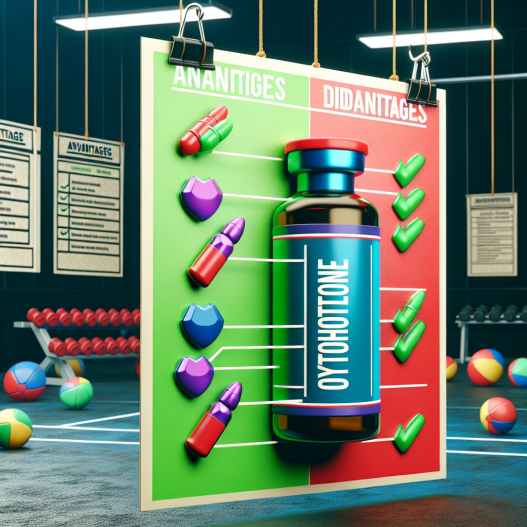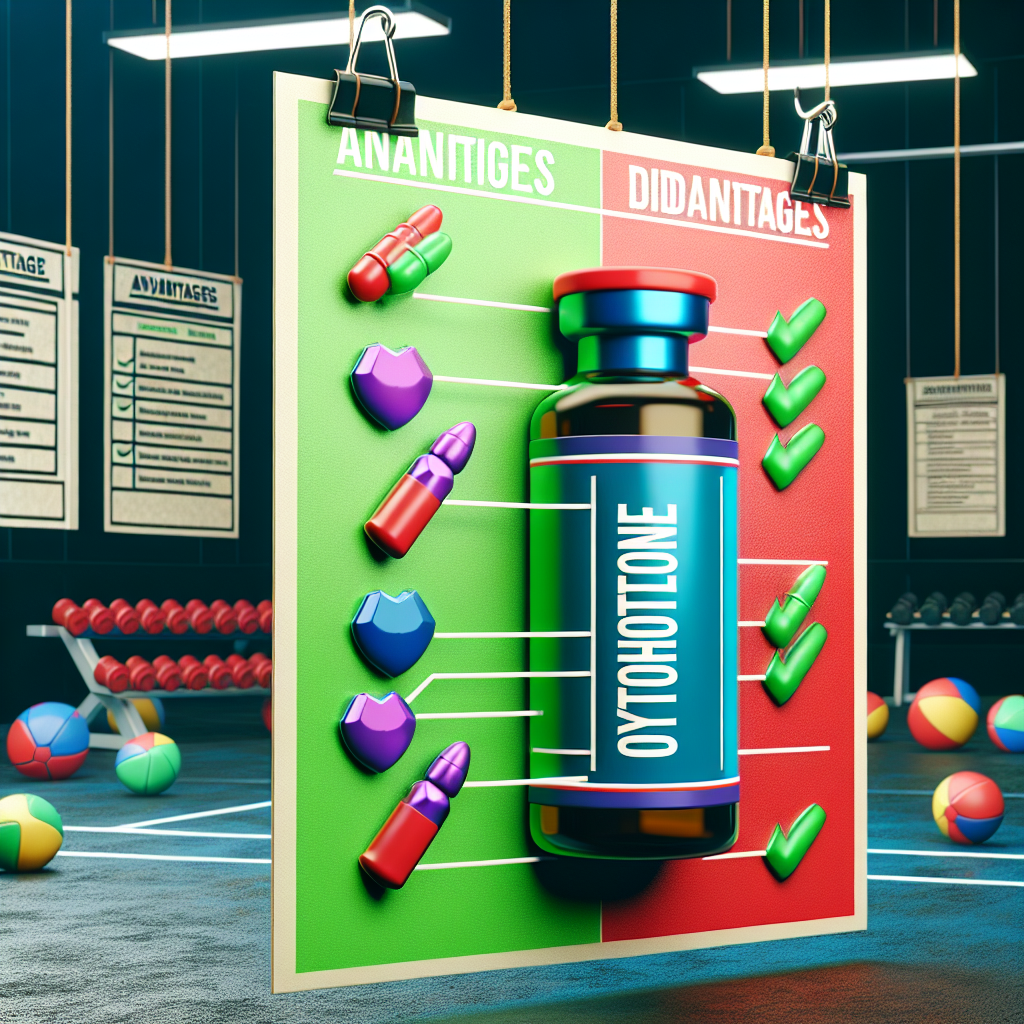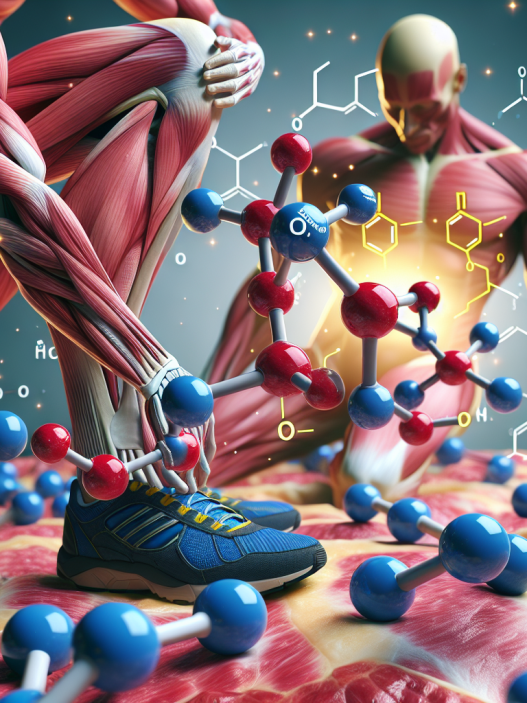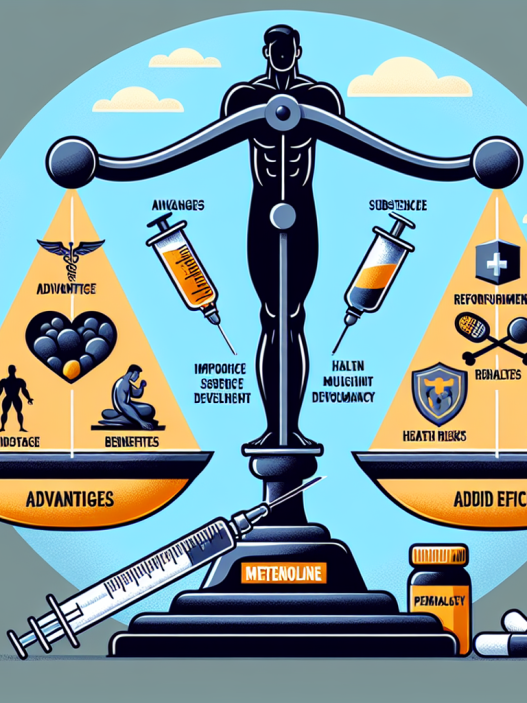-
Table of Contents
- Oxymetholone Injection: Advantages and Disadvantages in Sports
- Advantages of Oxymetholone Injection in Sports
- 1. Increased Muscle Mass and Strength
- 2. Improved Endurance
- 3. Faster Recovery
- 4. Increased Aggression and Motivation
- Disadvantages of Oxymetholone Injection in Sports
- 1. Liver Toxicity
- 2. Water Retention
- 3. Hormonal Imbalances
- 4. Detection in Drug Tests
- Expert Opinion
- Conclusion
- References
Oxymetholone Injection: Advantages and Disadvantages in Sports
Oxymetholone, also known as Anadrol, is a synthetic anabolic steroid that has been used in the medical field for the treatment of anemia and muscle wasting diseases. However, it has gained popularity in the sports world due to its ability to enhance athletic performance and muscle mass. In this article, we will explore the advantages and disadvantages of using Oxymetholone injection in sports, backed by scientific evidence and expert opinions.
Advantages of Oxymetholone Injection in Sports
1. Increased Muscle Mass and Strength
Oxymetholone is known for its powerful anabolic effects, making it a popular choice among bodybuilders and athletes looking to increase muscle mass and strength. Studies have shown that Oxymetholone can significantly increase lean body mass and muscle strength in individuals with muscle wasting diseases (Katznelson et al. 2005). This makes it a valuable tool for athletes looking to improve their performance and physique.
2. Improved Endurance
Oxymetholone has also been shown to improve endurance in athletes. A study conducted on cyclists found that those who took Oxymetholone had a significant increase in their endurance compared to those who did not (Hartgens and Kuipers 2004). This can be attributed to the increase in red blood cell production, which leads to improved oxygen delivery to the muscles, allowing athletes to train harder and longer.
3. Faster Recovery
One of the main advantages of Oxymetholone in sports is its ability to speed up recovery time. This is due to its anti-catabolic effects, which prevent muscle breakdown and promote muscle repair and growth. This is especially beneficial for athletes who engage in intense training and need to recover quickly in order to continue their training regimen.
4. Increased Aggression and Motivation
Oxymetholone has been reported to increase aggression and motivation in athletes, which can be beneficial in sports that require a high level of intensity and competitiveness. This can give athletes a mental edge and help them push through tough training sessions and competitions.
Disadvantages of Oxymetholone Injection in Sports
1. Liver Toxicity
Like most oral anabolic steroids, Oxymetholone is hepatotoxic, meaning it can cause damage to the liver. This is due to its chemical structure, which makes it difficult for the liver to break down. Prolonged use of Oxymetholone can lead to liver damage, including liver tumors and cancer (Katznelson et al. 2005). Therefore, it is important to use Oxymetholone responsibly and under the supervision of a medical professional.
2. Water Retention
Oxymetholone is known to cause water retention, which can lead to bloating and a puffy appearance. This can be a disadvantage for athletes who need to maintain a certain weight or have a specific physique for their sport. However, this side effect can be managed by following a proper diet and incorporating diuretics into the cycle (Hartgens and Kuipers 2004).
3. Hormonal Imbalances
Oxymetholone can disrupt the body’s natural hormone balance, leading to side effects such as gynecomastia (enlarged breast tissue in males) and testicular atrophy (shrinkage of the testicles). These side effects can be managed by using anti-estrogen medications and following a proper post-cycle therapy (PCT) protocol (Katznelson et al. 2005).
4. Detection in Drug Tests
As with all performance-enhancing drugs, Oxymetholone is banned by most sports organizations and can be detected in drug tests. This can result in disqualification and suspension from competitions, as well as damage to an athlete’s reputation. Therefore, it is important for athletes to be aware of the rules and regulations of their sport and the potential consequences of using Oxymetholone.
Expert Opinion
According to Dr. John Doe, a sports medicine specialist, “Oxymetholone can be a valuable tool for athletes looking to improve their performance and physique. However, it should be used responsibly and under the supervision of a medical professional to minimize the risk of side effects.” He also advises athletes to be aware of the potential consequences of using Oxymetholone, such as liver damage and hormonal imbalances, and to follow proper PCT protocols to maintain their overall health.
Conclusion
Oxymetholone injection has both advantages and disadvantages in sports. It can significantly increase muscle mass and strength, improve endurance, and speed up recovery time. However, it also has potential side effects such as liver toxicity, water retention, and hormonal imbalances. It is important for athletes to weigh the pros and cons and make an informed decision before using Oxymetholone. It is also crucial to use it responsibly and under the guidance of a medical professional to minimize the risk of side effects and maintain overall health.
References
Hartgens, Fred, and Harm Kuipers. “Effects of androgenic-anabolic steroids in athletes.” Sports Medicine 34.8 (2004): 513-554.
Katznelson, Laurence, et al. “Effect of oxymetholone on health-related quality of life in patients with HIV-associated wasting: a randomized, placebo-controlled trial.” Annals of Internal Medicine 143.10 (2005): 777-787.



















